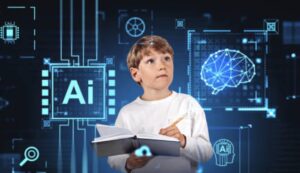Education is transforming like never before. Technology, changing student demographics, social movements, and other global influences stimulate the sector to reflect and evolve. This shift changes the roles of a teacher and students, so a new classroom environment is likely to surprise us. Here are seven potential changes that will revolutionize the way we learn in the following decade.
- Mental Health Awareness
Mental health has been severely overlooked for years. Unless students seek help themselves or reach out for some professional ‘do my homework’ assistance with their assignments, their wellness does not receive the required attention from educators and policymakers. The majority of the student population struggle with mental health issues like anxiety, stress, eating disorders, and depression. This takes a toll on their motivation and makes them underperform or even drop out, among other consequences.
In the next couple of years, we expect educators to address the issue and bring student mental health to the forefront of the educational system. Students will have mindfulness and self-care education incorporated into their curriculum. This will help them cope with the growing demands and challenges in school.
- Reimagining the Purpose of Education
The future is extremely unpredictable. New jobs appear every year. Technology fuels rapid growth in all areas of life. The pandemic has shown us that life could take an unexpected turn at any minute.
These changes encourage us to rethink the purpose of education. Now, instead of accumulating knowledge and learning a skill set “for life,” learners should be more adaptable and ready to upskill. The new and diverse landscape of education will support this objective and enhance the potential of a learner to succeed on individual and collective levels.
- Transforming Curriculum Toward Self-Directed Learning
As of today, curriculum and instruction are largely standardized and school-based. The future of education, however, will be centered on a student. It will allow self-directed learning and individual experiences. With technology widely adopted in content delivery, each student will have an opportunity to customize their study sessions.
Self-directed learning will support the concept of student ownership. It will allow students to take control and learn what, how, and when they want. Free choice will nurture a sense of responsibility and make students more involved in their study program.
- Thin Line Between Formal and Informal Education
While schools, colleges, and universities are not going anywhere and will continue to be key education centers, learning will extend far beyond their walls. We already have a variety of courses and other opportunities to learn outside of school. In the future, the distinction between formal and informal education will become more flexible or could even disappear altogether.
- More Room for Projects and Collaboration
Formal classrooms where students sit in rows and listen to a teacher will become a thing of the past. Learning will transform to allow more space for hands-on learning and collaboration.
Classrooms will facilitate communication and teamwork through project-based learning. Students are already familiar with this learning approach. In a decade, it will be standard practice. Project-based learning combines all the best practices. It allows students to solve real-world problems, collaborate with peers, and develop their soft skills like time and project management.
Practical experience is a critical need of all students. Therefore, schools of the future will do everything to offer these opportunities to learners.
- New Learning Environments
The future of learning will require a new learning environment. This means more than rearranging desks and chairs in the classroom or choosing between traditional and remote learning.
The new classroom will combine physical and virtual spaces. With technologies like VR, IoT, AI, and machine learning, classes will be more immersive and practical. This enhanced space will add more interactions and hands-on experiences. By stimulating the visual, tactile, and auditory sensations, the new environment will help students stay engaged and retain information.
Students will also get their personal virtual assistants. They will help build a learning routine and keep track of one’s progress.
- Rethinking Assessment and Feedback
Students often focus on the end result, like passing an exam or getting a high GPA. However, today’s tests and grading systems are far from providing an accurate picture of a learner’s knowledge and competence.
In the future, we expect the emergence of new technology-enhanced methods of assessment. They will likely involve biometrics to track engagement and understanding. As a result, instead of counting the number of correct answers, teachers will be able to assess more profound parameters. These are things like motivation levels and learners’ growth over time. Data-based assessment will allow educators to offer more informed feedback and follow-up assignments.
Concluding thoughts…
We have a lot of exciting changes ahead of us in the education sector. With a customizable curriculum, all-encompassing adoption of technology, and focus on each individual learner with their intellectual, social, and mental needs, education will appear in its completely new form. The following decade holds a lot of promising transformations that will empower students and inspire their success.



